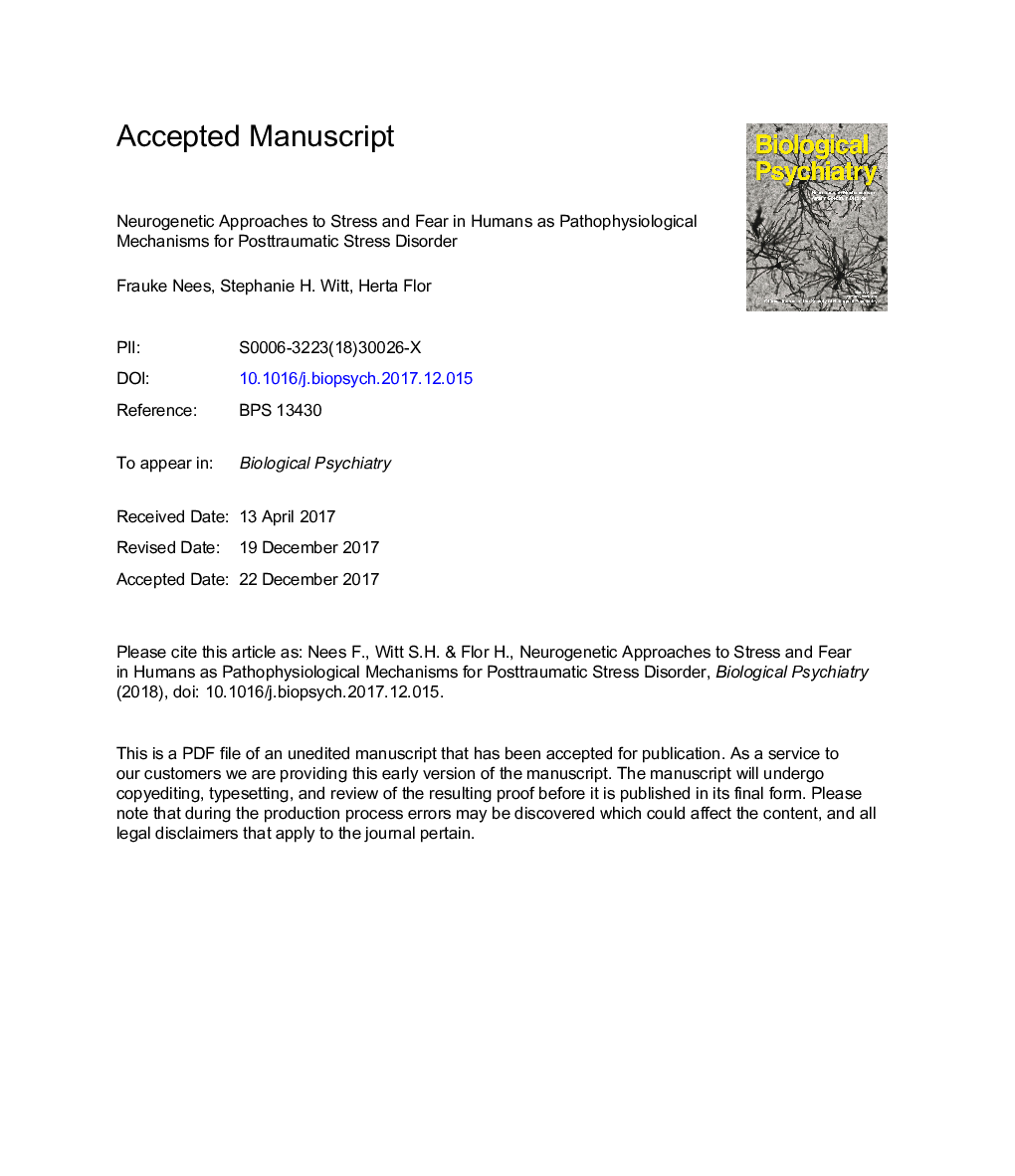| کد مقاله | کد نشریه | سال انتشار | مقاله انگلیسی | نسخه تمام متن |
|---|---|---|---|---|
| 8813982 | 1607997 | 2018 | 41 صفحه PDF | دانلود رایگان |
عنوان انگلیسی مقاله ISI
Neurogenetic Approaches to Stress and Fear in Humans as Pathophysiological Mechanisms for Posttraumatic Stress Disorder
ترجمه فارسی عنوان
رویکردهای نوروژنتیکی برای استرس و ترس در انسان به عنوان مکانیسم های پاتوفیزیولوژیک برای اختلال استرس پس از سانحه
دانلود مقاله + سفارش ترجمه
دانلود مقاله ISI انگلیسی
رایگان برای ایرانیان
کلمات کلیدی
موضوعات مرتبط
علوم زیستی و بیوفناوری
علم عصب شناسی
روانپزشکی بیولوژیکی
چکیده انگلیسی
In this review article, genetic variation associated with brain responses related to acute and chronic stress reactivity and fear learning in humans is presented as an important mechanism underlying posttraumatic stress disorder. We report that genes related to the regulation of the hypothalamic-pituitary-adrenal axis, as well as genes that modulate serotonergic, dopaminergic, and neuropeptidergic functions or plasticity, play a role in this context. The strong overlap of the genetic targets involved in stress and fear learning suggests that a dimensional and mechanistic model of the development of posttraumatic stress disorder based on these constructs is promising. Genome-wide genetic analyses on fear and stress mechanisms are scarce. So far, reliable replication is still lacking for most of the molecular genetic findings, and the proportion of explained variance is rather small. Further analysis of neurogenetic stress and fear learning needs to integrate data from animal and human studies.
ناشر
Database: Elsevier - ScienceDirect (ساینس دایرکت)
Journal: Biological Psychiatry - Volume 83, Issue 10, 15 May 2018, Pages 810-820
Journal: Biological Psychiatry - Volume 83, Issue 10, 15 May 2018, Pages 810-820
نویسندگان
Frauke Nees, Stephanie H. Witt, Herta Flor,
